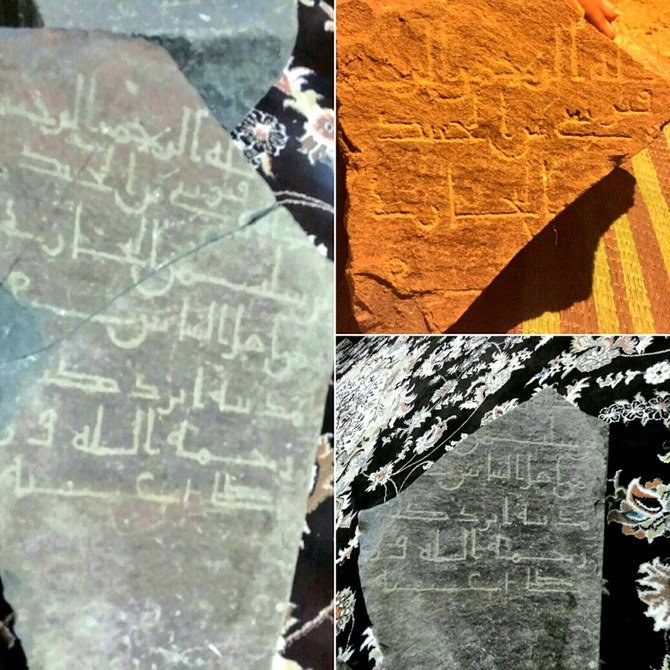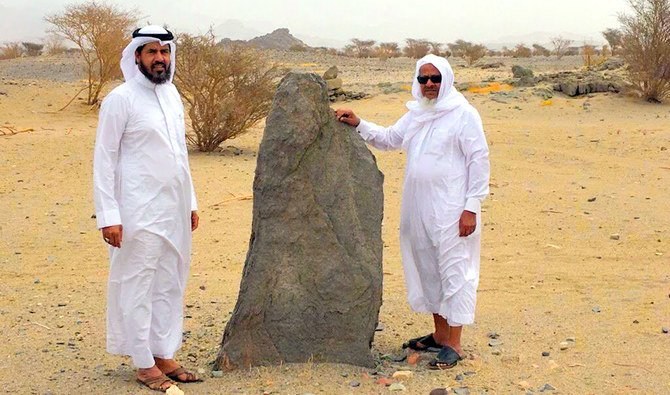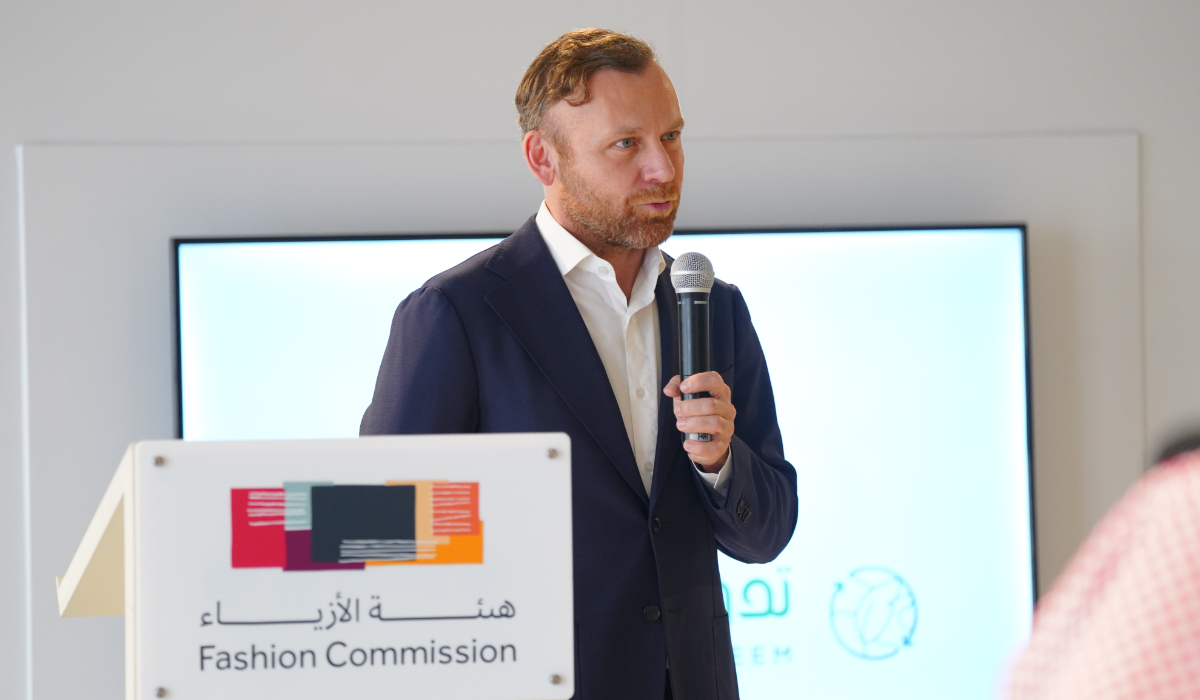RIYADH: The Saudi Commission for Tourism and National Heritage (SCTH) has recovered thousands of illegally taken antiquities.
SCTH is encouraging citizens and residents inside and outside of Saudi Arabia to hand over national antiquities. This is so the items can be displayed in museums and exhibitions to highlight their historical value, since they represent essential evidence for the study of civilizations that once prevailed in the Kingdom.
SCTH has formed a special committee to work on the inventory of lost artifacts and recover them in coordination with the authorities at the Saudi ministries of interior and foreign affairs.
These efforts resulted in the return of about 32,000 national artifacts from outside the Kingdom, and about 20,000 national artifacts from within it, according to the SCTH website.
Dr. Nayef Al-Qanoor, director general of the Registration and Protection of Antiquities department in SCTH, said that the archaeological survey is considered the pillar of archaeological works in the Kingdom. The search began with a small group of Saudi researchers.
FASTFACT
The priceless items recovered include arrowheads and stone tools, a 1,000-year-old clay pot, basalt grinding stones, a neo-Babylonian seal stamp and Roman-era glass bracelets.
“It has initiated since the 1980s the establishment of an organization responsible for the antiquities of the Kingdom and the enactment of laws and regulations to protect national cultural property,” Al-Qanoor told Arab News. “Since that time, that organization began to inventory and document national antiquities from within the Kingdom and abroad that have been taken illegally.”
Al-Qanoor said that SCTH has missing antiquities that are documented and registered on their database.
There is a red list on the commission’s website of stolen national and cultural property with a picture and a description of each item and when it was stolen.
He said that SCTH is working in cooperation with its partners to track down the antiquities. “Most of the national heritage artifacts that have been returned came from the US,” he said.
Al-Qanoor said that there is a joint cooperation agreement between the commission and Saudi Aramco “in returning national antiquities that were taken out of the Kingdom illegally.”
The antiquities were voluntarily returned from American citizens who worked in the Kingdom in the 1960s or from their relatives in coordination with the Ministry of Foreign Affairs.
Others have also voluntarily returned national antiquities from France, Britain and Canada.

Marian Ferguson collection. (Supplied)
Al-Qanoor said that SCTH honors those who returned the antiquities.
Arthur Clark, assistant editor at AramcoWorld and editor of the twice-yearly magazine Al-Ayyam Al-Jamilah, became involved with the Antiquities Homecoming Project through Saudi Aramco’s King Abdul Aziz Center for World Culture (Ithra) in Dhahran in late 2011.
“The center launched the Antiquities Homecoming Project in cooperation with the Saudi Commission for Tourism and National Heritage to encourage Aramco retirees and family members to repatriate archaeological antiquities that they had collected during their years in the Kingdom,” Clark told Arab News.
Aramco’s Houston-based subsidiary publishes Saudi Aramco’s magazine for retirees, Al-Ayyam Al-Jamilah, of which Clark is editor. “Through the magazine, we reached out to annuitants around the globe for help in locating objects of national historical interest,” he said.
Clark has worked with Ithra in its cooperative agreement with SCTH arranging for antiquities to be returned to Saudi Arabia.
Clark said that he had helped to return hundreds of antique pieces. “They range from hundreds of arrowheads and other stone tools from the Empty Quarter desert to a 1,000-year-old clay pot from Al-Ahsa in the Eastern Province, basalt grinding stones from Mada’in Saleh, and a neo-Babylonian seal stamp and Roman-era glass bracelets, also from the Eastern Province,” he said.
The center launched the Antiquities Homecoming Project in cooperation with the Saudi Commission for Tourism and National Heritage to encourage Aramco retirees and family members to repatriate archeological antiquities that they had collected during their years in the Kingdom.
Arthur Clark, Assistant editor at Aramco World and editor of twice-yearly magazine Al-Ayyam Al-Jamilah
Clark said that he is not an antique collector but likes to view antiquities on-site in the Kingdom or in its museums. “My work in contacting retirees and family members has turned up many ‘unexpected antiques’,” he said.
According to Clark, “each piece is fascinating.”
“One of the most intriguing (antiquities), because of its age (and the journey it made), was a clay bowl found near Jubail by Marian Ferguson, who lived in Dhahran with her husband Kenneth and their son Ken from 1953-1970,” he said.
Daniel Potts, a highly regarded scholar of Arabian archaeology, said that it was almost certainly a Mesopotamian bevel-rim bowl dating to 3400-3000 BCE “and, if so, the first one to turn up in the Eastern Province.”
“Another notable ‘find’ was what looks to be a bead-drilling tool — perhaps the first of its kind— found in the Eastern Province and donated with other artifacts by retiree Mark Goldsmith,” Clark said.
Al-Qanoor said that the removal of antiquities from the Kingdom took place before the establishment of an official body concerned with national heritage. “These events were at a time when there was not full knowledge of the importance of national heritage, which led to some of them exiting the country illegally,” he said.
Al-Qanoor said that all shops with heritage antiquities in the Kingdom are subject to regulations. There was continuous monitoring of these markets, and the commission worked with their owners from the perspective of sustainable partnership.
He said that all returned antiquities pieces come back via official channels and underwent a series of procedures before they are restored — checking the authenticity of the piece and if it belongs to the civilizations of Saudi Arabia.
BACKGROUND
• The Antiquities Homecoming Project dates back to a donation in 2001 of a 2-foot stele covered with Greek letters found in 1968 by Tom Barger, Aramco’s CEO, in Mada’in Saleh. It is part of the T.C. Barger Collection at the National Museum in Riyadh. Barger’s son, Tim, said his father, a geologist, ‘read anything he could find about the archaeology of Arabia and collected about a dozen significant pieces.’
• When Tom Barger retired in 1969, he placed the stele and nine other artifacts he had discovered in the Semitic Museum at Harvard University until arrangements could be made to transfer them to the Kingdom.
• More than 40 donors, including some with indirect connections to the company (Saudi Aramco), have returned antiquities since 2011.
“This is followed by the initiation of formal restoration procedures in coordination with the Ministry of Foreign Affairs and other partners,” Al-Qanoor said.
He said that most of the items returned are in their original and intact condition. Some have suffered minor fractures and have been treated by the Department of Restoration of the Heritage and Museums Sector.
Mohammed Al-Maghthawi, a Saudi expert in early Islamic inscriptions, has discovered more than 3,000 early Islamic inscriptions and has read, studied and linked many of them to historical sources.
He contributed to the discovery and registration of three archaeological sites on the old caravan route called the path of the prophets and was registered on the National Archaeological Register.
Al-Maghthawi handed in three pieces of early Islamic inscriptions from the 7th and 8th century AD and received an award from Prince Sultan bin Salman, former president of SCTH, for his discoveries.
“The Kingdom has many archaeological and historical sites, inscriptions and drawings that are not found in any other country. We are working with SCTH under the regulations and instructions to preserve this valuable national heritage,” he said.
Hamdan Al-Harbi, an expert in the historical antiquities found in the villages crossing prophets pathway and migration (Hijrah) and caravans between Makkah and Madinah, found tombstones from a village underground, and was the first to see many of these historical tombstones when a flood swept through part of the village in 1992.



































